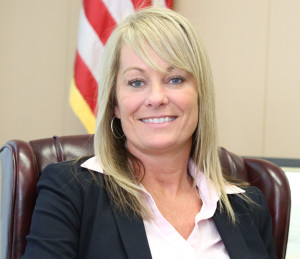State schools superintendent Sherri Ybarra and her team are looking to increase the qualifications needed to run for the job.
Ybarra is working on a bill to ramp up the qualifications to run for — and serve as — Idaho superintendent of public instruction. If the bill surfaces at the Statehouse next winter, it figures to rekindle the debate over the credentials required for the elected superintendent’s position.

Ybarra special assistant Tim Corder unveiled nine new proposed pieces of legislation Wednesday, at the first day of the Idaho Association of School Administrators conference in Boise. The proposals offer the first public insights into 2016 legislative priorities for Ybarra and the State Department of Education.
The qualifications bill would require the state superintendent to hold a valid Idaho administrator’s certificate and graduate from an accredited college or university, as determined by the State Board of Education.
Furthermore, the proposal would require the state superintendent be “actively engaged in educational work in the state public schools or in the state educational institutions.”
Corder provided school administrators and Idaho Education News with a packet that included a 1.5-page summary of all nine proposals, but the full text of the proposed bills was not available.
The new proposal would go beyond current law. Under Idaho law, the state superintendent must be at least 25 years of age, hold a bachelor’s degree from an accredited college or university and have lived within Idaho for two years preceding the election.
On top of those requirements, the state superintendent must be elected, with elections held every four years.
Ybarra, a Mountain Home Republican who is in the first year of a four-year term, would meet the higher criteria outlined under the proposal Corder unveiled Wednesday.
Qualifications were a recurring criticism during Tom Luna’s eight-year tenure as state superintendent. The first non-educator to hold the post, Luna had not worked as a school administrator; instead, he served as a Nampa School District trustee. His college degree was a bachelor of arts in liberal arts.
Additionally, Corder called for a new proposed bill that would grant non-refundable tax credits to certified staff working in public schools or charter schools. Under the proposal, certified staff would be able to claim a $500 credit in 2016.
For the 2017 tax year, certified staff in rural schools and rural charters would be able to claim a non-refundable tax credit of $1,000. That amount would drop to $750 and $500 in 2018 and 2019.
Finally, Corder provided brief summaries of other bills on the topics of school bus transportation inspections and training, crediting unused sick leave to employees and data privacy.
Ybarra attended the conference, but did not speak directly about the state superintendent qualifications bill.
The 2016 legislative session is scheduled to begin Jan. 11 at the Statehouse.
